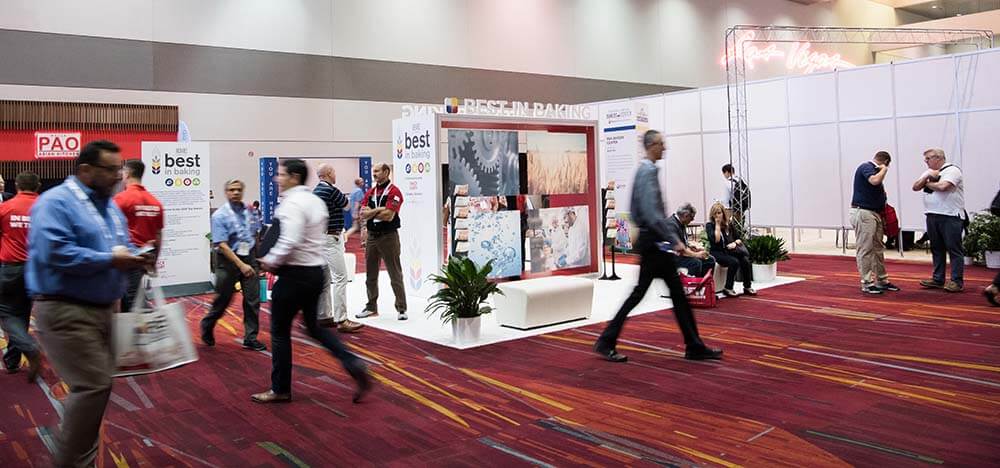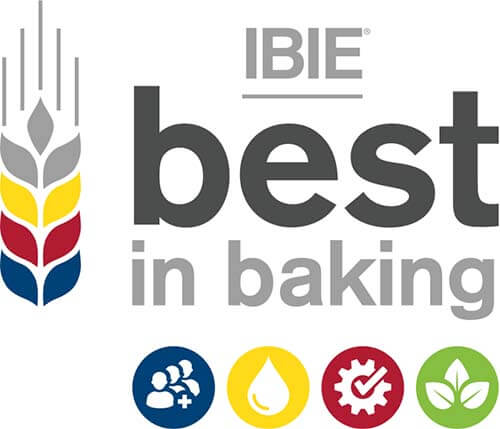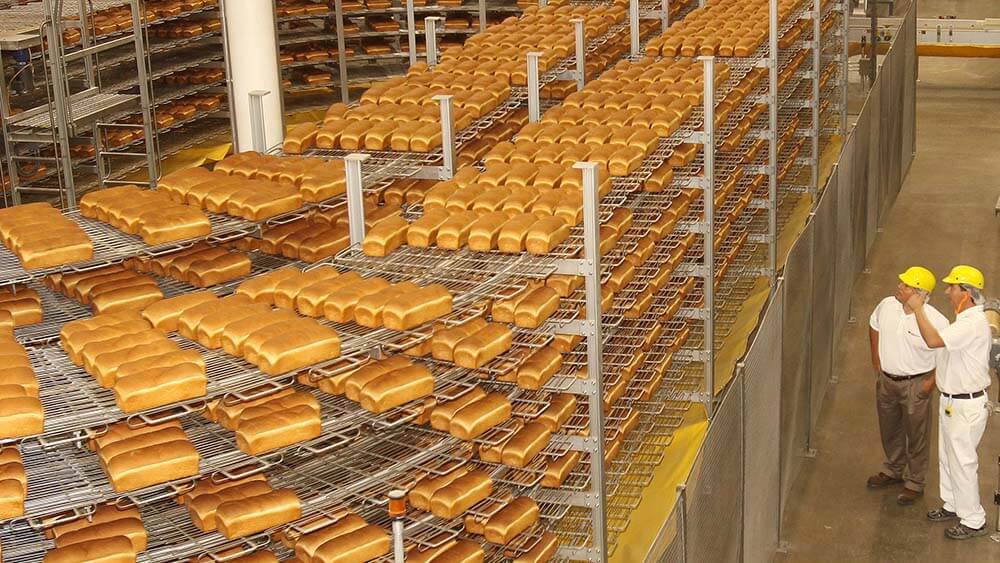
Top honors and qualifiers in the BEST in Baking program are featured in the BEST in Baking Lounge at the International Baking Industry Exposition. IBIE launched the program in 2010 to honor companies introducing sustainable products or practices into the industry.
Editor’s note: Renowned anthropologist Dr. Jane Goodall has said of the climate crisis, “What you do makes a difference, and you have to decide what kind of difference you want to make.” With that in mind, we are dedicating the November/December edition of Convene fully — our first single-topic issue — to the climate crisis, and what the business events industry is doing to address this global challenge. Find stories from the Climate Issue here, and read our cover story, “A ‘Watershed Moment’ for Events — and the World.”

Kimberly Hardcastle-Geddes
When it comes to going green, most event marketers start with the obvious solutions — trading print promotions for digital or finding alternatives to single-use plastics. Yet, we stop short of efforts that become integral to the experience or initiatives that carry on after it ends. It’s relatively easy being green for the span of an event or a campaign. How can we promote sustainable practices on the show floor that live on beyond the event and positively impact the communities and industries we serve? Let’s think outside the recycling bin.
Bake Sustainability Into the Experience
When considering our role in fostering sustainability, event marketers and show organizers often target the low-hanging fruit: reducing or eliminating paper and plastic, instituting recycling programs, donating leftover food and supplies, and maybe even minimizing emissions by working with local vendors. When done with intention — and not merely for attention — these are all critical and meaningful details that shouldn’t be overlooked in any event plan. However, many of us would like to be doing more.
For the International Baking Industry Exposition (IBIE), which meets every three years in Las Vegas, “more” started with a question: How can we have a more direct impact on the industry we serve? The answer led to the introduction of the BEST (Becoming Environmentally Sustainable Together) in Baking program, launched by IBIE and mdg in 2010. While it took some time to generate awareness in the initiative’s first year, we sensed sustainability would be a growing trend in the baking industry and brought the program back to the triennial show in 2013. That year, 65 companies submitted entries and five received top honors in their respective categories. Open to suppliers only, the program evaluates equipment, ingredients, packaging, technology, or other processes that improves efficiency, reduces energy use, reduces environmental impact, and/or otherwise brings notable sustainability to the baking industry.

Bakers now come to IBIE in search of suppliers featuring the BEST in Baking seal on their products.
Today, the baking industry considers sustainability one of its top priorities, and bakers come to IBIE in search of suppliers featuring the BEST in Baking seal on their products. One exhibiting company told us that a huge buyer sought them out specifically because of its recognition in that program — a buyer they expected to make their entire exhibiting experience and sales year. The program has been so successful since its inception, it has expanded to recognize other “paramount topics in the industry,” including supply chain innovation, workforce development, product innovation, and sanitation. Expected to draw approximately 1,000 exhibitors and 23,000 baking professionals to the Las Vegas Convention Center in mid-September, IBIE introduces two new BEST categories in 2022: automation and robotics and plant efficiency.
Besides being good for the planet, this program and others like it are clearly good for your exhibitors’ visibility and bottom lines — and the benefits extend to your event. With all the ingredients of a great storyline, the BEST in Baking program allowed IBIE to create compelling promotional content for the show’s website, videos, on-site lounge, and more; garner robust media attention, including that elusive pre-show press; and attract valuable sponsorships. Imagine the ripple effect that a similar incentive program — and the success stories that are sure to follow — could have for your partner organizations and industries.
Raise Awareness — and Your Profile
By rewarding exhibitors that bring goods to market using methods that reduce waste and foster energy conservation not just once a year but year-round, we can bring sustainability to the forefront of the conversation, generate greater interest in our events, and inspire the adoption of more environmentally friendly practices across industries.
Here’s one more way you can make a meaningful impact: Think about establishing standards and guidelines on sustainability specific to your association or event and incorporating those principles into your code of ethics for professionals. Not only does this help to align expectations across your industry but it helps to establish your leadership position and demonstrate your commitment.
As we start looking more closely at the sustainability of materials used to produce events — from the carpeting in the exhibit hall to the lanyards and badges we wear — this is our opportunity to take a more global view of the industries we touch. By shifting our focus from short- to long-term, event marketers can do more than react to change. We can be a catalyst for it.

Georgia-based baker Flowers Foods has set sustainability goals for 2025 that include reducing greenhouse gas emissions and water use by 20 percent, converting its packaging to recyclable/reusable, or compostable material, and sourcing sustainable palm oil. (Courtesy Flowers Foods)
Keep the Conversation Going
In celebration of Earth Day in 2019, the International Baking Industry Exposition staff published highlights on its website of sustainability practices in the baking industry, from opting for biodegradable over recyclable packaging to sustainable palm oil production to baking facilities using solar-powered electricity. Food waste is another a big issue in the baking industry and the post noted how Flowers Foods was on track to reach 90-percent zero-waste-to-landfill.
In addition to zero waste, Flowers Foods set other sustainability goals for 2025 in its 2019-2020 Sustainability Report: reducing greenhouse gas emissions and water use by 20 percent, converting its packaging to recyclable/reusable, or compostable material, and sourcing sustainable palm oil.
Kimberly Hardcastle-Geddes is president and chief marketing strategist of mdg, a marketing and public relations agency specializing in audience acquisition for live and online events.
